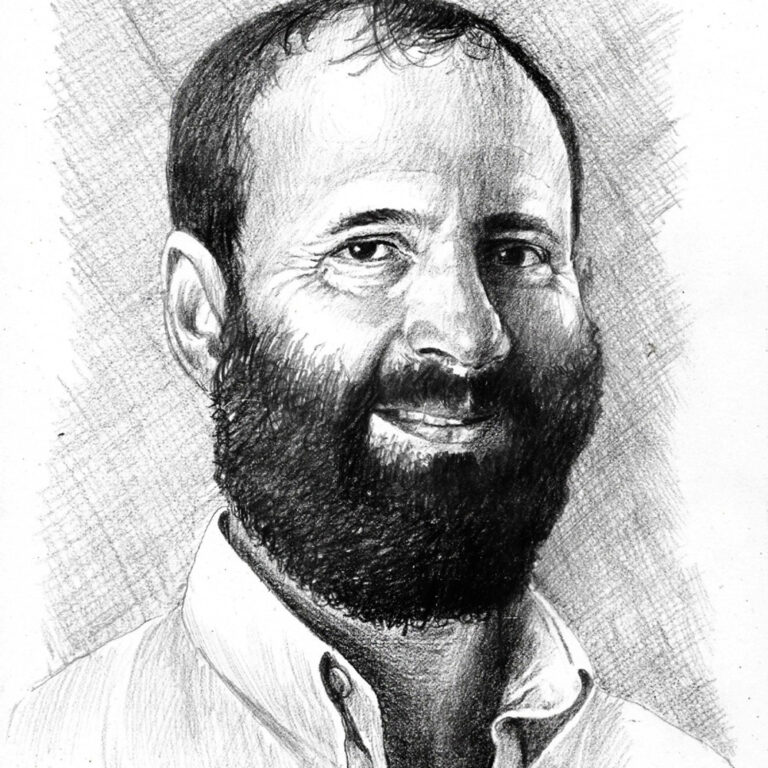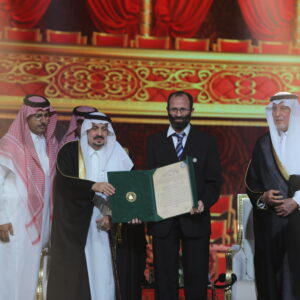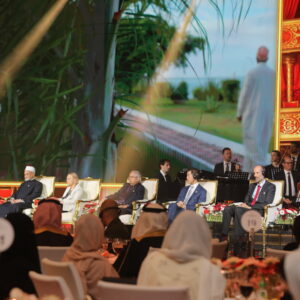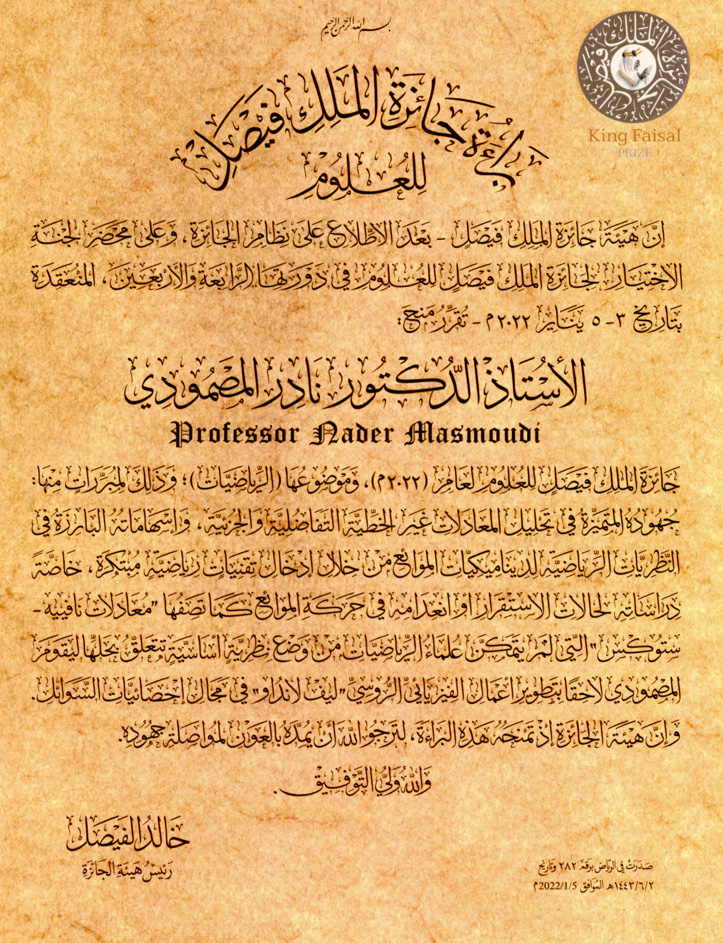

Professor Nader Masmoudi
King Faisal Prize in Science 2022 Laureate
Topic: "Mathematics"
I urge young people to get inspiration and guidance from the sources of learning, acquire mastery in science, and attach real importance to scientific research for the purpose of achieving scientific advancement and civil progress

Nader Masmoudi received his B.Sc. from the Lycée Louis-Le-Grand in 1994, where he came first at the Concours of Ecole Normale Supérieure and Ecole Polytechnique, and his M.Sc. from Ecole Normale Supérieure in Paris in 1996. This performance earned him the prize of the Republic of Tunisia for academic achievement. He then later received his PhD from Paris-Dauphine University in 1999 with a paper on asymptotic problems in Fluid Mechanics and his second diploma (Habilitation) from the same university on Fluid Mechanics and Gas Dynamics in 2000. Masmoudi was appointed as a researcher at the CNRS in Paris from 1998 until 2000.
Masmoudi then was appointed as an assistant professor at New York University in 2000 at the Courant Institute of Mathematical Science, where he later became a full professor in 2008. Focusing primarily on partial differential equations coming from physics, functional analysis, differential geometry and fluid mechanics. Currently Professor Masmoudi is a distinguished Professor of Mathematics at the New York University of Abu Dhabi and head of his Research Center on Stability, Instability and Turbulence.
Professor Masmoudi’s research has been at the forefront of Partial Differential Equations, Fluid Mechanics and Dynamical Systems for the past 20 years. He has been cited by more than 8000 papers for his works in pure and applied mathematics, and has helped discover many breakthroughs in Fluid Mechanics and especially in 2D and 3D Euler equations, the Prandtl system, which have remained unsolved since 1757. In particular he discovered that Euler’s equations do not always apply and can sometimes “blow-up” and become singular under certain conditions. This work helps to solve many problems in fluid-modeling topics ranging from airplanes and weather predictions to traffic flow and crowd management.
An author of more than 160 papers, Professor Masmoudi is an elected member of the American Academy of Arts and Sciences as of 2021. He has been recognized with numerous awards, grants and fellowships including the Sloan research Fellowship, the Best Scientific Paper Award in Annales de l’Institut Henri Poincaré, a fellowship from the National Science Foundation, a Chair from the Fondation Sciences mathematiques de Paris, the Fermat Prize, the Chair Schlumberger from the IHES in Paris, the SIAG/APDE Prize from the Society for Industrial and Applied Mathematics, the Kuwait Prize in the field of Fundamental Science from The Kuwait Foundation for the Advancement of Sciences, and the Kifra Prize from the African Institute for Mathematical Sciences. He was also a recipient of a Gold medal at the mathematical Olympiad.
This biography was written in the year the prize was awarded.




